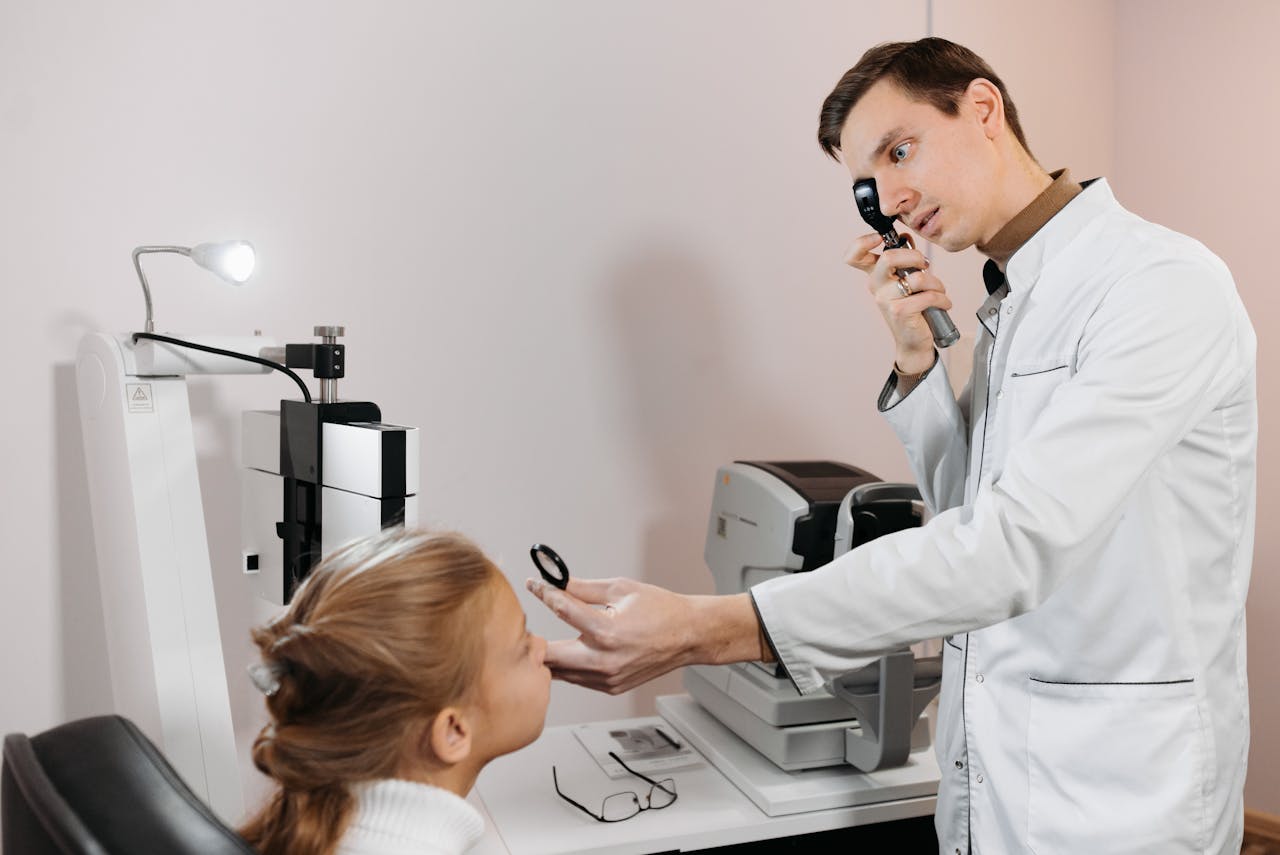
GAMCA standards have some specific guidelines for applicants with vision or hearing impairments undergoing a medical examination. Here’s a breakdown of what to expect:
Vision:
- Minimum Visual Acuity: There’s usually a minimum visual acuity requirement, often measured using a Snellen chart. The exact requirement might vary depending on the specific GCC country and the job role. In general, applicants should be able to see enough to perform their job duties safely.
- Corrective Lenses: If you wear corrective lenses (glasses or contacts), you’ll likely be asked to wear them during the vision test. The doctor will assess your vision with and without correction.
- Color Vision: Color vision might be important for some job roles. A test to assess your ability to distinguish colors might be included in the examination.
- Field of Vision: Your field of vision, or peripheral vision, might also be checked to ensure you can see objects within a certain range.
Hearing:
- Hearing Test: An audiometry test is typically used to assess your hearing ability. This painless test measures the softest sounds you can hear at different frequencies.
- The severity of Hearing Loss: The acceptable level of hearing loss might vary depending on the GCC country and the specific job requirements. Some jobs might require good hearing in both ears, while others might allow for moderate hearing loss with the use of hearing aids.
- Communication During Examination: The doctor should communicate clearly and adjust their communication style if necessary to ensure you understand the instructions and can participate actively in the examination.
Important Considerations:
- Accommodation Requests: If you have a vision or hearing impairment, it’s best to inform the doctor or testing centre beforehand. This allows them to make any necessary accommodations during the examination, such as providing written instructions or using amplified audio equipment.
- Documentation: If you use corrective lenses or hearing aids, bring a copy of your prescription or wear them during the examination.
- Focus on Your Ability: While impairments exist, focus on demonstrating your ability to perform the job duties effectively despite any limitations.
Additional Tips:
- Consult Your Doctor: Discuss any concerns you have about the vision or hearing tests with your regular doctor beforehand. They might be able to provide additional guidance or recommendations.
- Practice Communication: If you have any communication difficulties due to your hearing impairment, practice communicating with a healthcare professional beforehand. This can help ensure a smooth and successful examination.
Remember, open communication and advocating for your needs are key. By understanding the guidelines and being prepared, you can ensure a positive GAMCA medical examination experience even with vision or hearing impairments.



